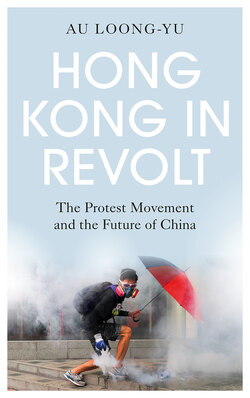Читать книгу Hong Kong in Revolt - Au Loong-Yu - Страница 11
На сайте Литреса книга снята с продажи.
The Rise of a New Generation
ОглавлениеTen years before the Umbrella Movement in 2014 there were already signs of a new generation in Hong Kong with very different perspectives and expectations – social and political – when compared to previous generations. It was the collision between Beijing’s policies and Hong Kong’s new generation which gave rise to the Umbrella Movement.
In general, Hong Kongers, including the young, have tended to be apolitical and conservative. The 1997–8 Asian economic crisis marked the beginning of a new period, when thousands of civil servants came out to the street to protest privatisation. The protests coinciding with the 2005 World Trade Organization Ministerial Meeting in Hong Kong, especially the radical actions of a group of South Korean farmers, inspired many young people. From then on, one witnessed a continuous radicalisation of the youth. The founding of the League of Social Democrats (LSD) in 2006 drew support from a thin layer of young Hong Kongers. This was followed by the 2007 Defence of the Queen’s Pier campaign, a conservationist movement, which drew hundreds of young activists. In 2009 the Hong Kong government approved the Vibrant Express high-speed rail project to promote even closer integration between Guangdong and Hong Kong; this was followed by the Moral and National Education Project designed to promote ‘patriotism’ in education in Hong Kong. These developments were met with immediate resistance from young Hong Kongers, first in 2010 and then in 2012. The 2012 protests were more of a success because of a greater level of civil disobedience, signalling that a young, radical generation had finally arrived on the scene and were prepared to take over leadership from the pan-democrats for a new round of struggle.
Meanwhile, Beijing began to target the culture and language of Hong Kong. Prior to this, Hong Kongers had never made an issue of their mother tongue. Beginning in 2008, the Hong Kong government began to promote the replacement of Cantonese with Putonghua as a teaching medium in the city. This angered local people, especially since they had witnessed what had happened to the people of nearby Guangzhou city in China. For more than two decades the CCP has been pushing a campaign to ‘promote Putonghua and abolish Cantonese’ in Guangzhou, not only in schools but also in radio and television broadcasting, resulting in the young generation no longer being able to speak their mother tongue. Eventually this triggered a ‘defend Cantonese movement’ in Hong Kong and a protest on 25 July 2010.4 It died out with the increasing repression since 2012. Hong Kong people saw their future in this case and therefore resisted the policy of replacing Cantonese with Putonghua. Forced assimilation over language is always a sign of colonisation. But even the British colonial government never attempted to eliminate Cantonese from schools, let alone the media.
